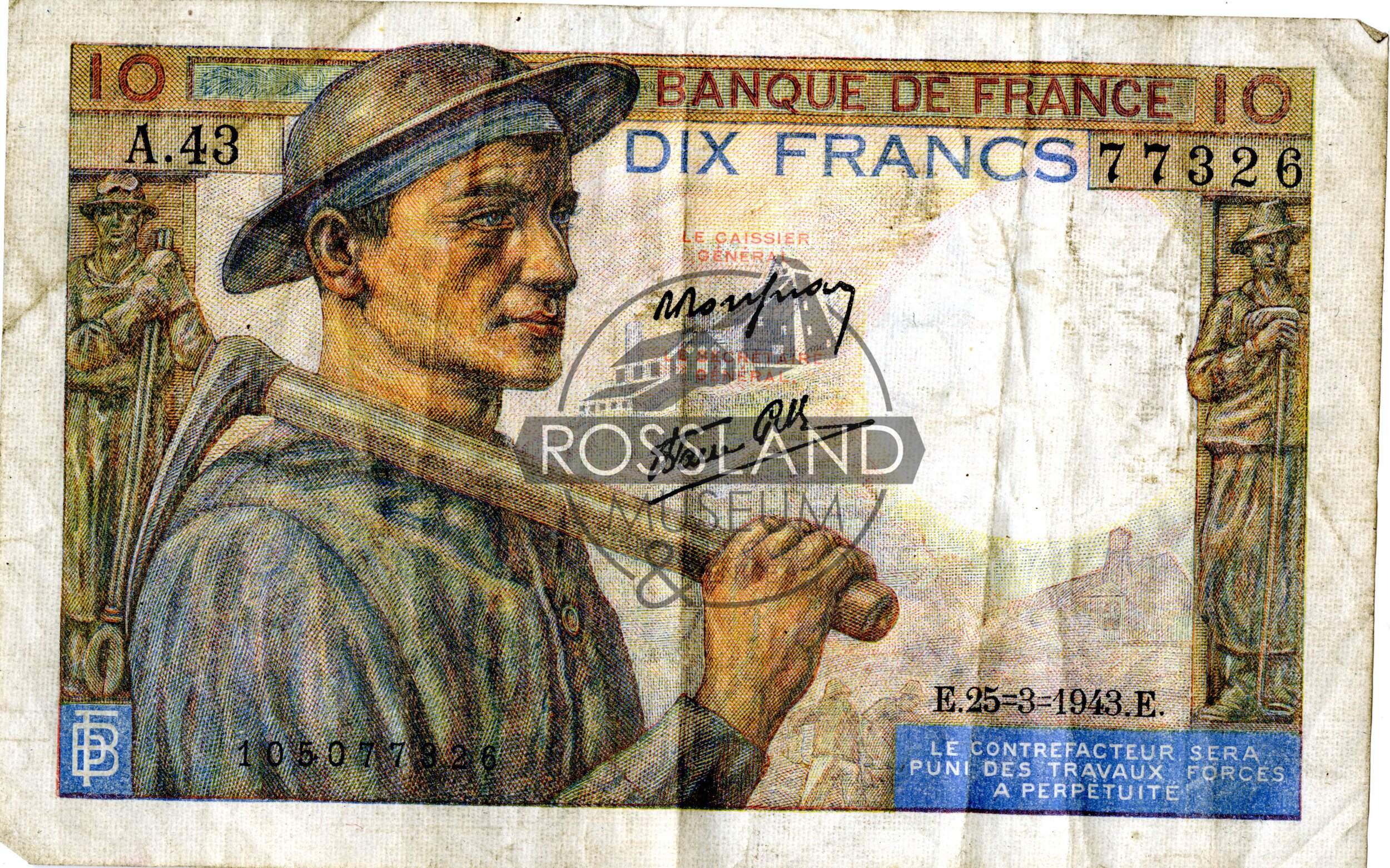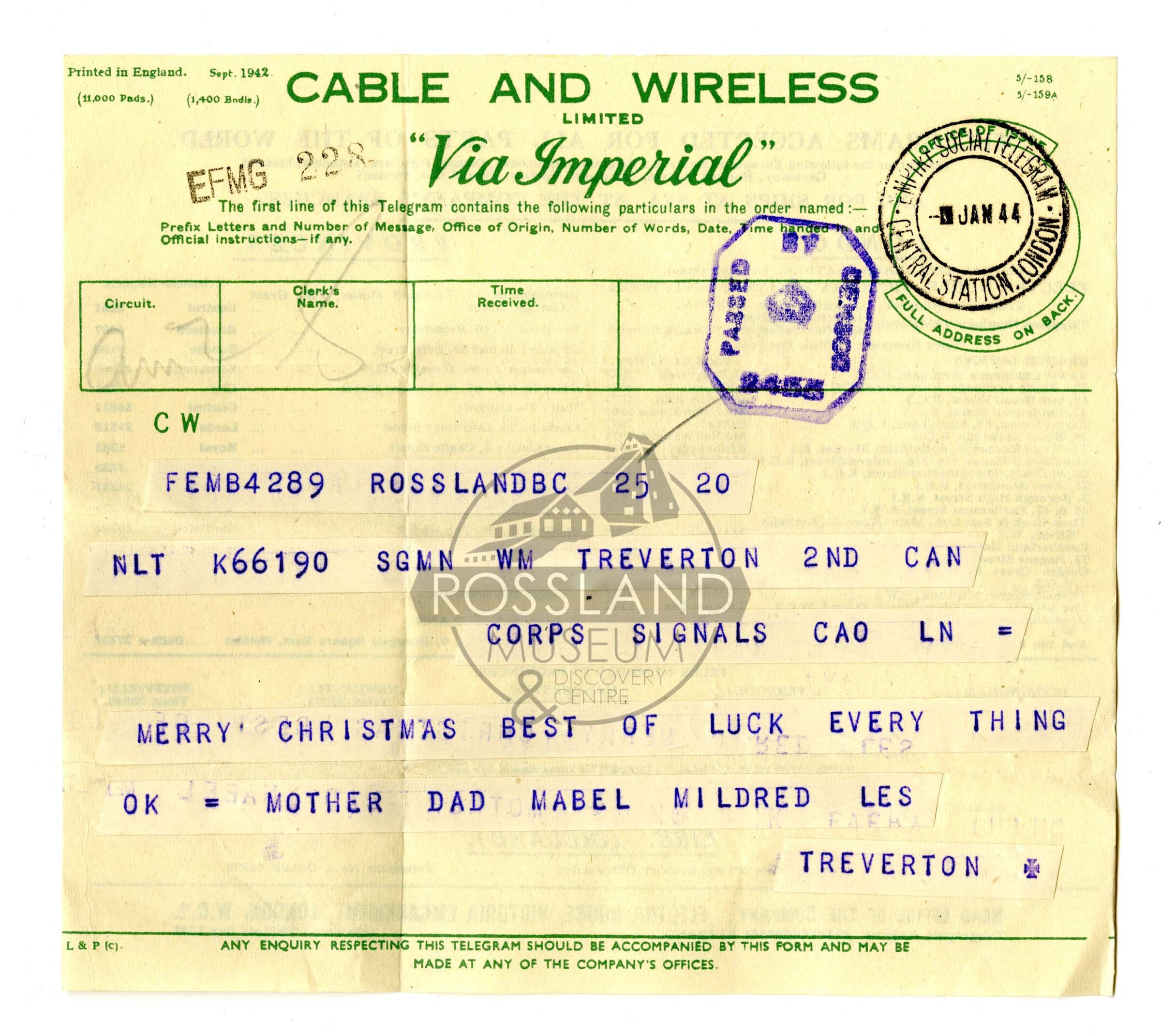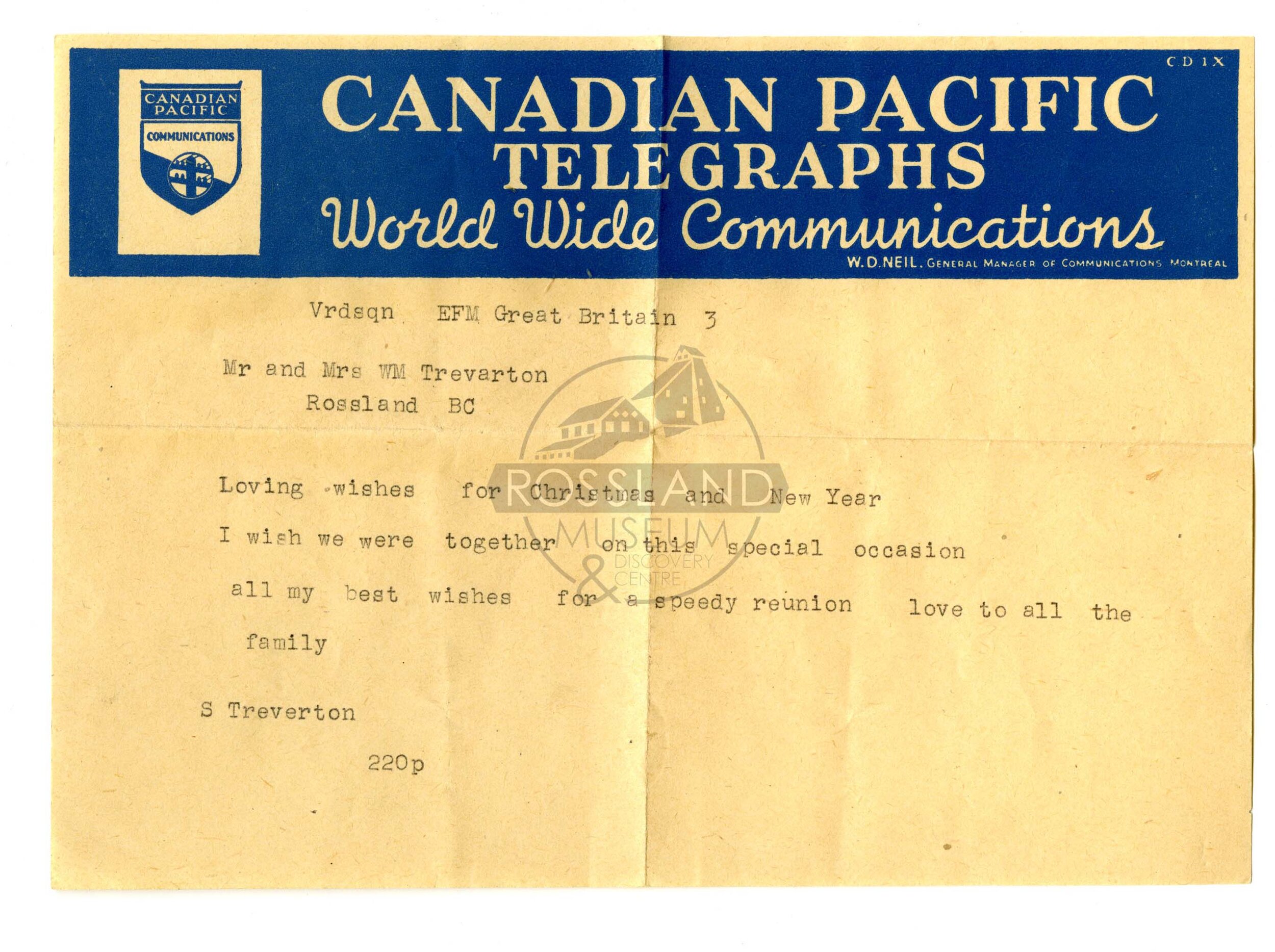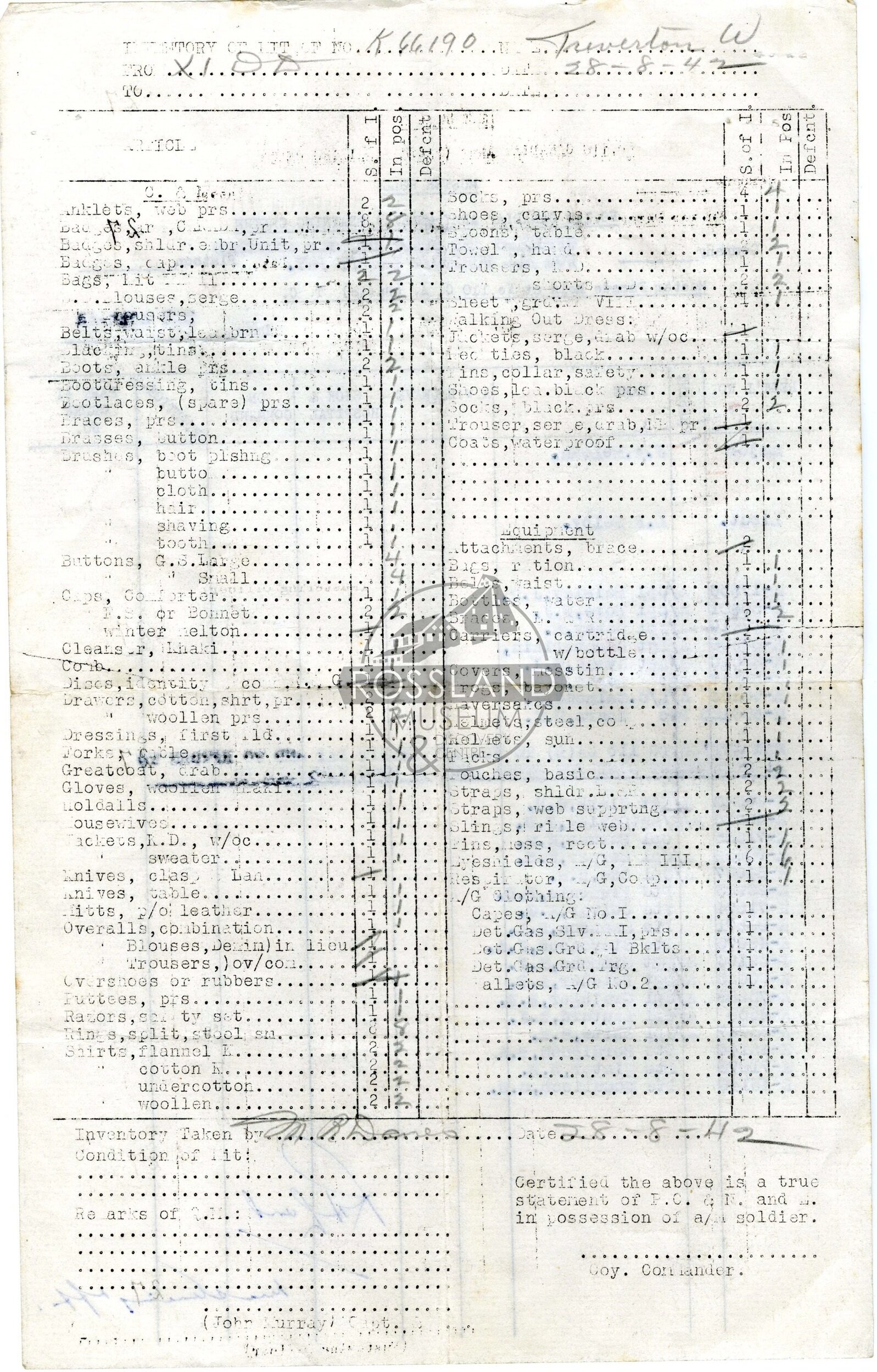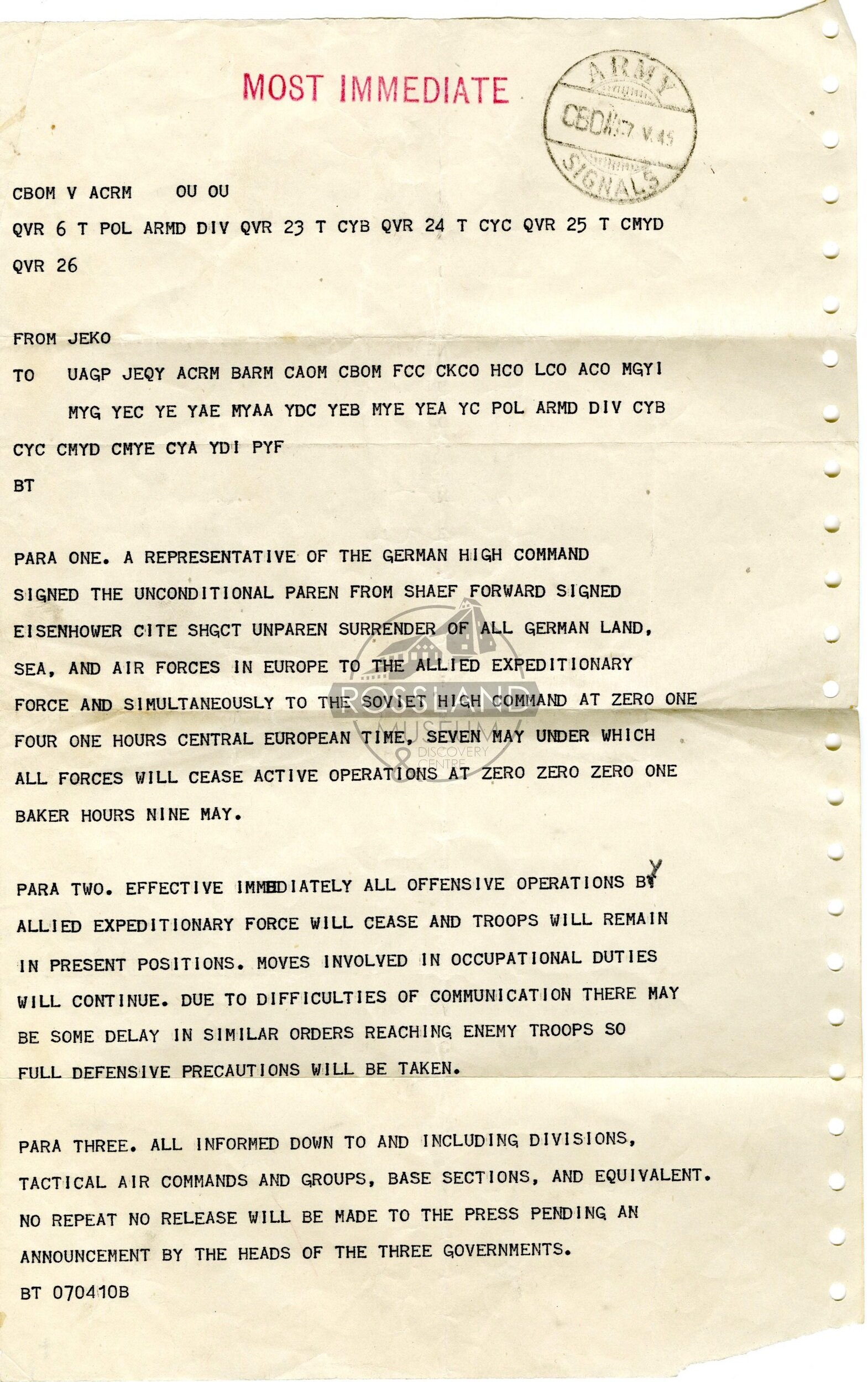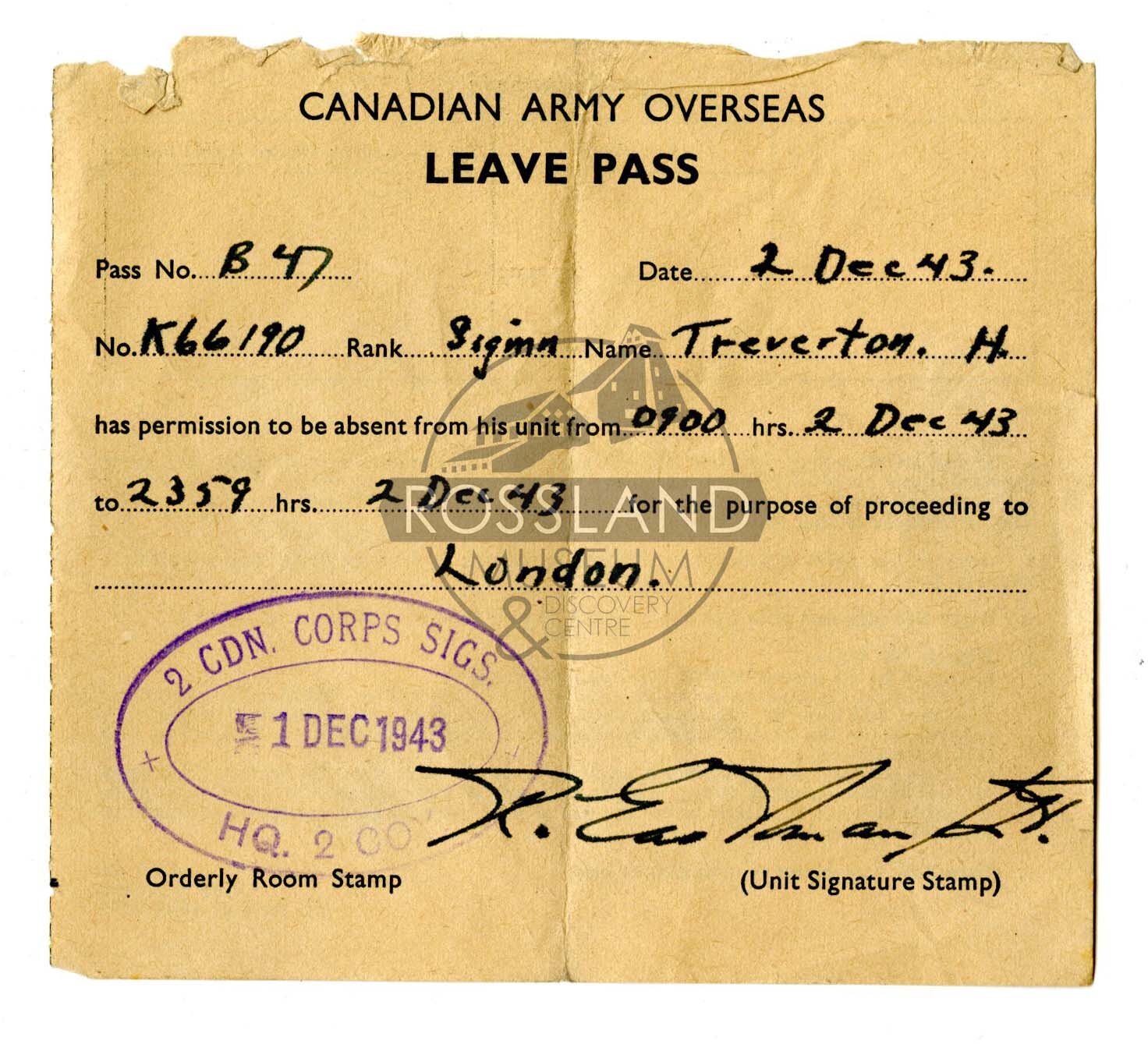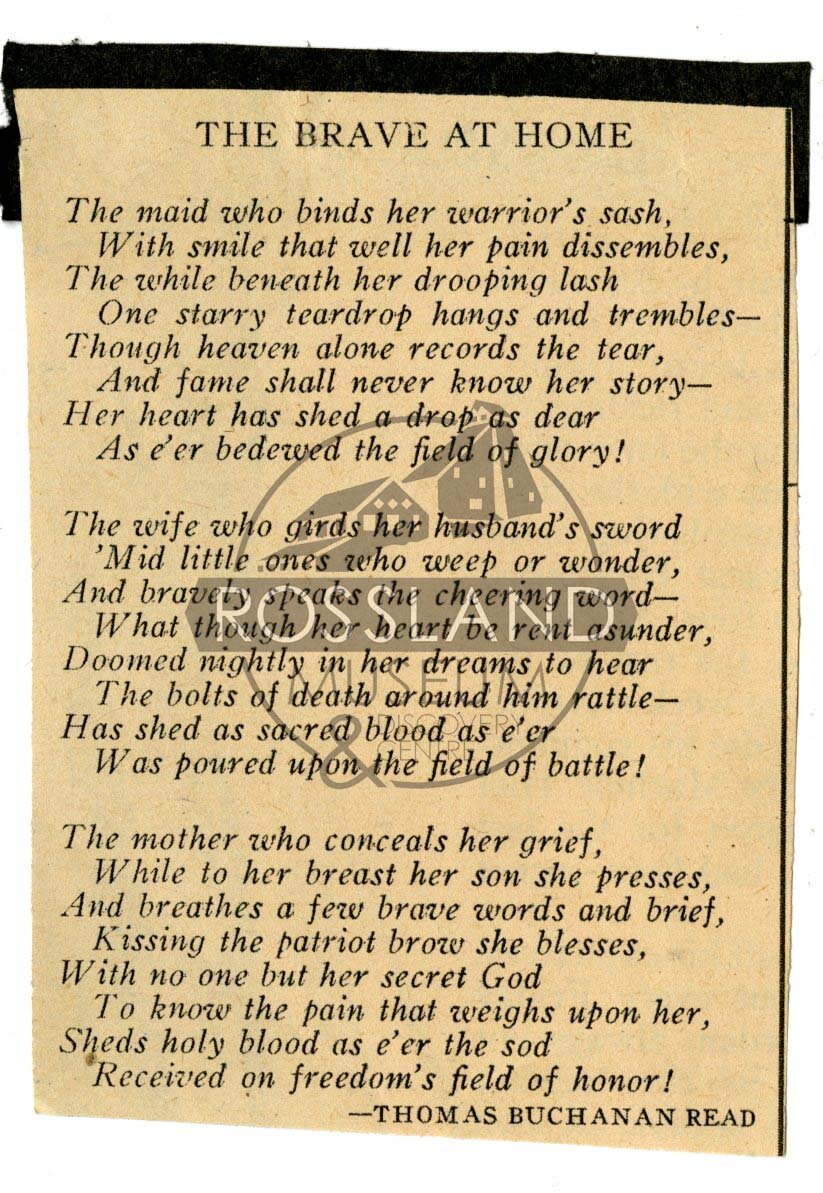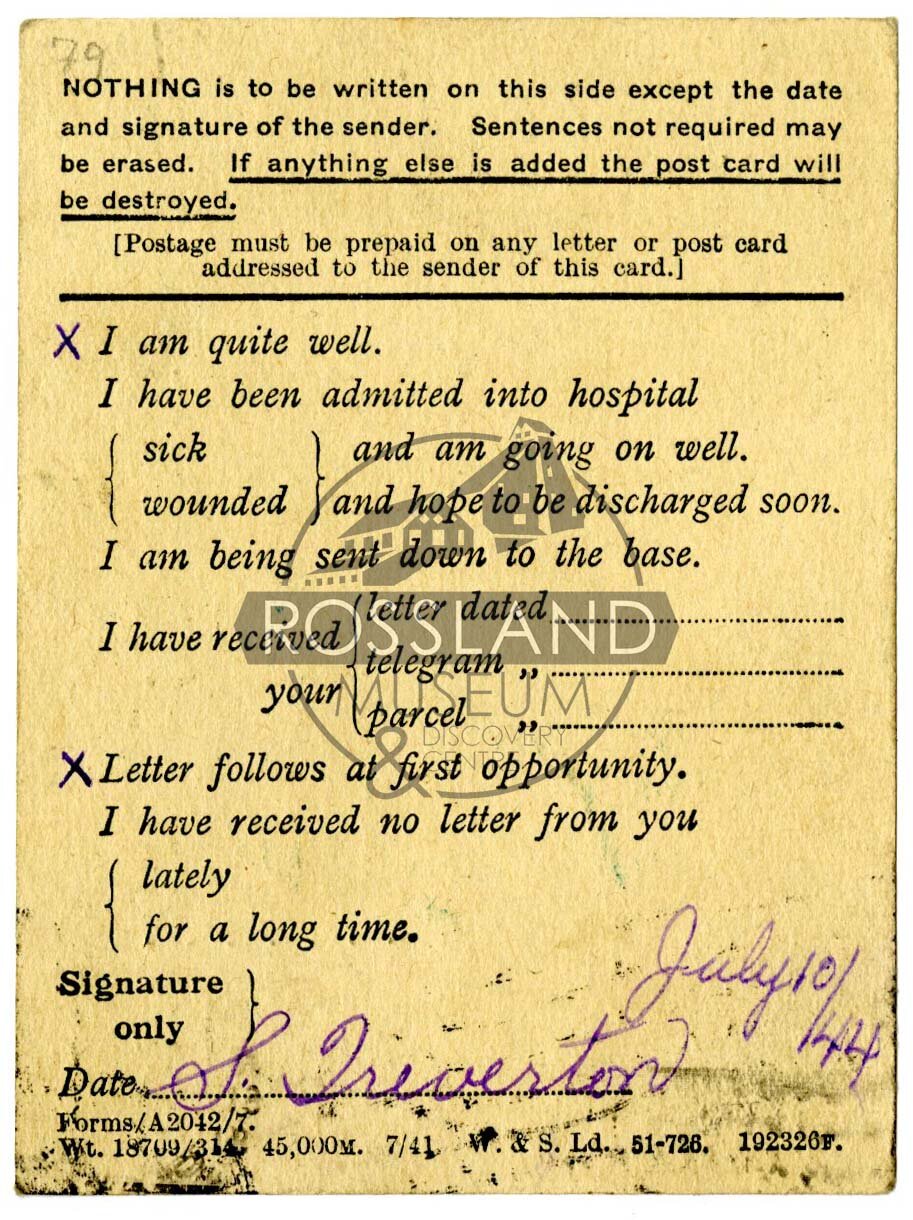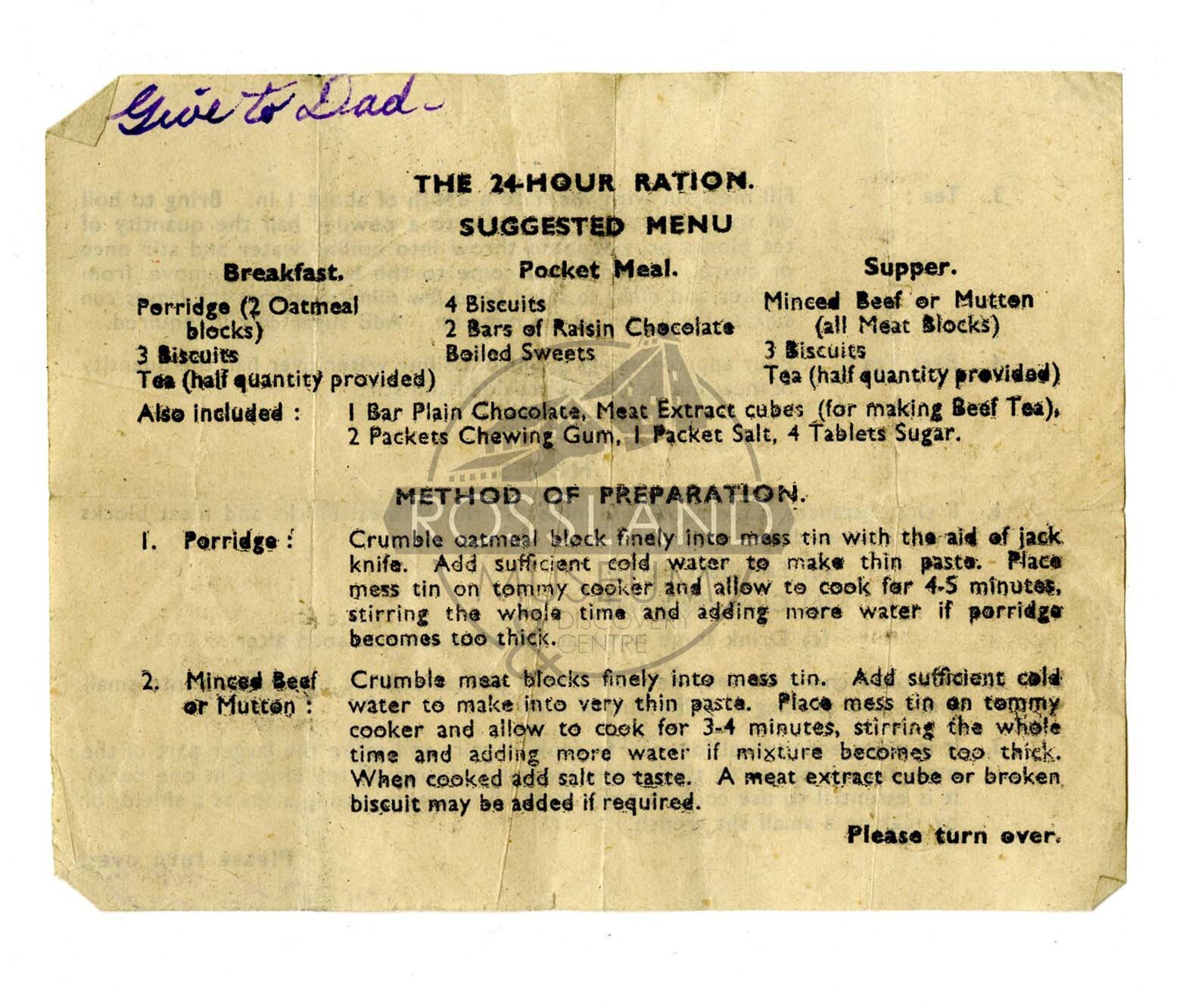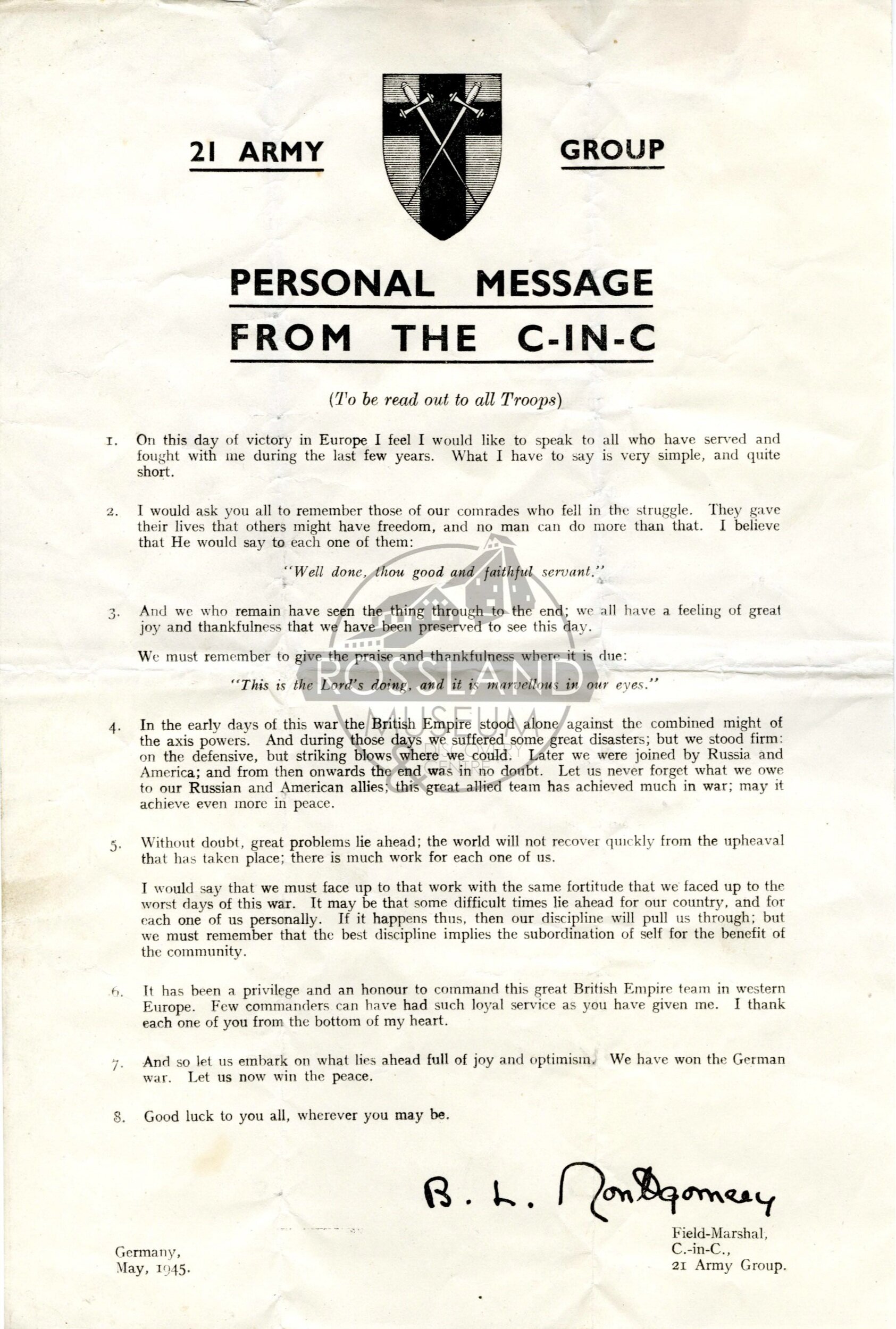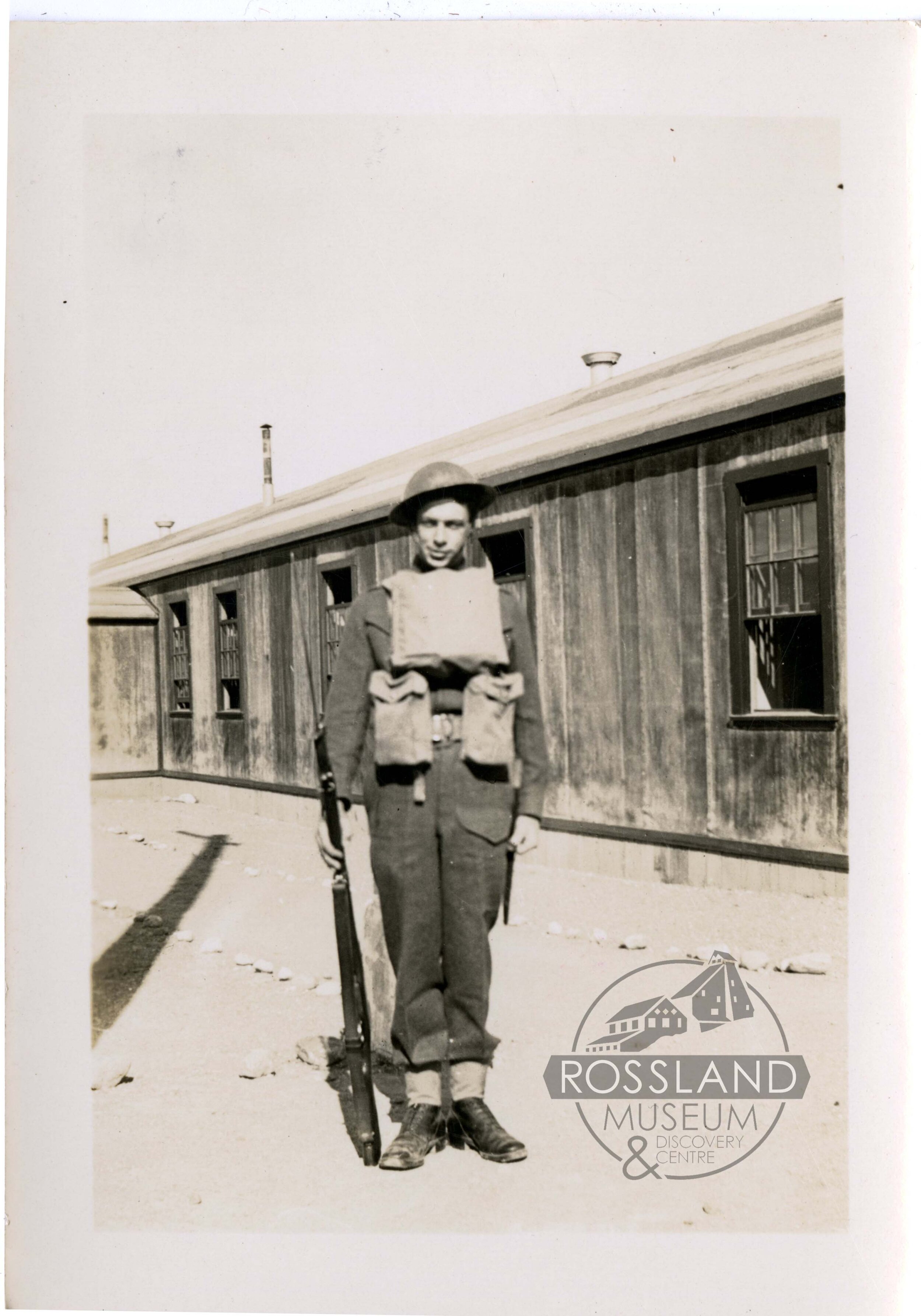William Treverton WWII Collection
As part of Veterans Week, we’re highlighting William Treverton’s collection of memorabilia that he collected and sent home during WWII.
William “Spike” Treverton was born on 9 August, 1910 in Rossland.
His parents, William and Mabel, were both born in Cornwall, England and moved to Canada in 1898. He had three siblings, Mary Jane, John Leslie, and Mabel.
During World War II, William served as a signalman in the Royal Canadian Corps of Signals as part of the 2nd Canadian Infantry Division. As a signalman (sometimes referred to as radioman), William was an integral part of ensuring communication between the front lines and headquarters was maintained.
While we are not sure what offensives William took part in, there are several references to Operation Overlord or the Battle of Normandy in his letters to family.
William Treverton in uniform - 24 September 1942, in Vernon.
When William’s unit was not on the front lines during rotation, he would travel around the different areas of Europe he was in, and he sent postcards home to his parents and younger sister from all over Western Europe, including Cornwall, London, Brighton, Dover, France, Belgium, Holland, and Germany. He also sent home telegrams on birthdays, Christmas, and Mother’s Day. Additionally, he saved different pieces of currency he obtained while in Europe to bring home to show his family when the war was over. There are many postcards, letters, stamps, tourism pamphlets, army letters, and maps from his travels. All of the items that William collected and sent home to his family were placed in scrapbooks, many of which have little notes to his family about the locations. The scrapbooks and other ephemera were donated to the museum in 2019 by Mabel Treverton’s estate.
After the war, William settled in Grand Forks, and he passed away in 1984 at the age of 73.
The first page and envelope from the letter Treverton sent to his parents on 12 July 1944.
“Seen a lot of damaged buildings both by shell and bombs. I don’t think Les would stand this racket, its something damable with ack-ack, light and heavy artillery going every minute.”
This fantastic collection offers us insight into William’s experience with WWII but also the whole Treverton family. We get to see what parts of William’s experience he wanted to share with his family, but also what the Trevertons deemed worthy of holding onto for so many years.
As historians and museum professionals, it is always our goal to maintain our archival material as close to its original intention as possible. However, this collection posed an interesting challenge for long-term preservation. Because of the fragility of wartime-era paper and the general acidic nature of early scrapbook paper, we concluded it was in the best interest of the collection to remove it from the scrapbooks. Our Archives Assistant, Elena spent several weeks this summer carefully documenting the scrapbooks before removing the contents. The Treverton collection will be re-housed into acid-free photo pages, maintaining the original order created by the Treverton Family and helping us preserve this wonderful collection for generations to come.
Click through the gallery to see a few more items from the Treverton collection:
